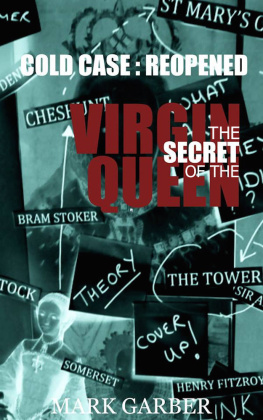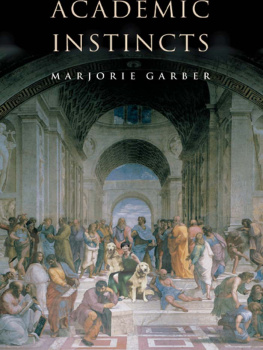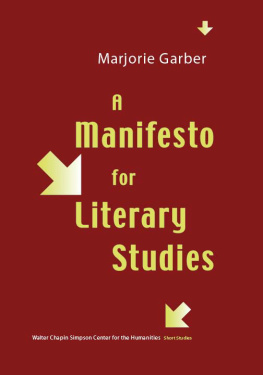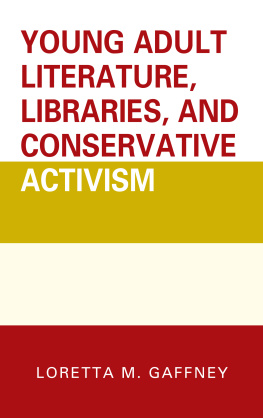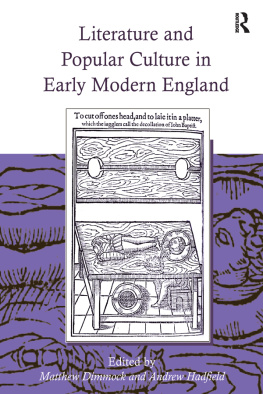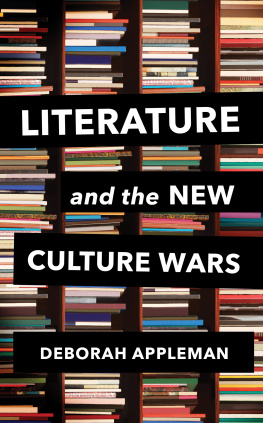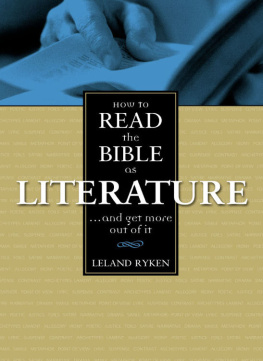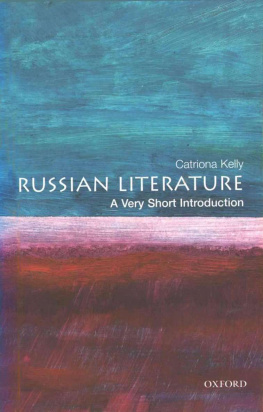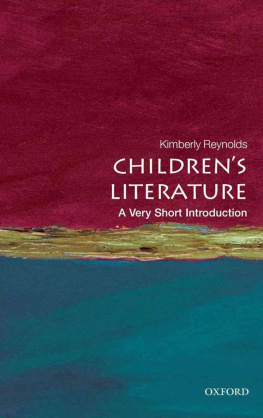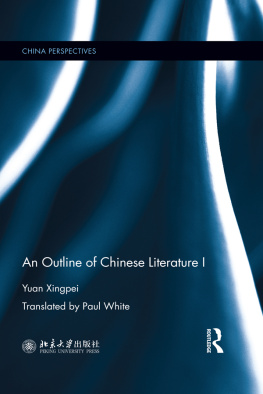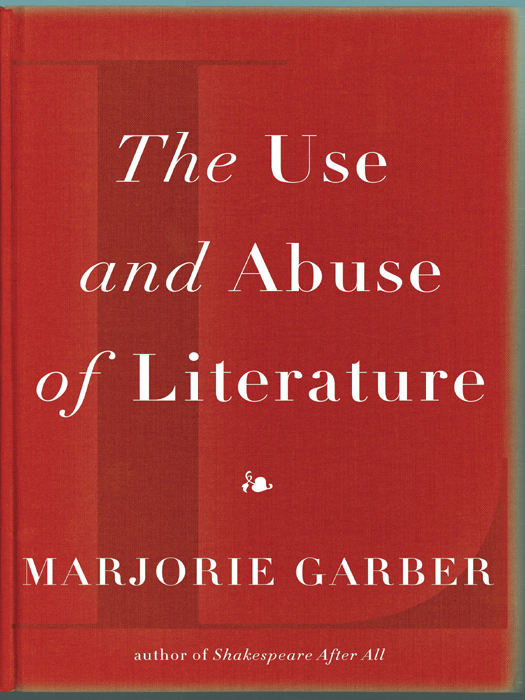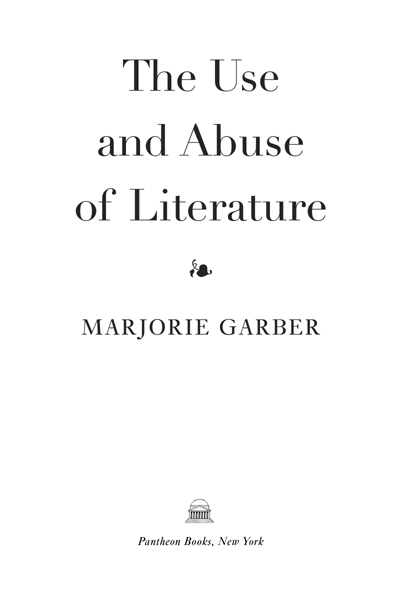ALSO BY MARJORIE GARBER
Shakespeare and Modern Culture
Patronizing the Arts
Profiling Shakespeare
Shakespeare After All
A Manifesto for Literary Studies
Quotation Marks
Academic Instincts
Sex and Real Estate
Symptoms of Culture
Dog Love
Vice Versa: Bisexuality and the Eroticism of Everyday Life
Vested Interests: Cross-Dressing and Cultural Anxiety
Shakespeares Ghost Writers: Literature as Uncanny Causality
Coming of Age in Shakespeare
Dream in Shakespeare
Copyright 2011 by Marjorie Garber
All rights reserved. Published in the United States by Pantheon Books, a division of Random House, Inc., New York, and in Canada by Random House of Canada Limited, Toronto.
Pantheon Books and colophon are registered trademarks of Random House, Inc.
Grateful acknowledgment is made to the following for permission to reprint previously published material: Alfred A. Knopf: Excerpts from The Man on the Dump from The Collected Poems of Wallace Stevens, copyright 1942 by Wallace Stevens and renewed 1970 by Holly Stevens. Reprinted by permission of Alfred A. Knopf, a division of Random House, Inc. Anne Bernays: Letter to the editor, printed in The New York Times, March 7, 2008. Reprinted by permission of the author. Houghton Mifflin Harcourt Publishing Company: Excerpt from Burnt Norton from Four Quartets by T. S. Eliot, copyright 1936 by Harcourt, Inc. and renewed 1964 by T. S. Eliot. Reprinted by permission of Houghton Mifflin Harcourt Publishing Company. Random House, Inc.: Excerpts from In Memory of W. B. Yeats from Collected Poems of W. H. Auden, copyright 1940 and renewed 1968 by W. H. Auden. Reprinted by permission of Random House, Inc.
Library of Congress Cataloging-in-Publication Data
Garber, Marjorie
The use and abuse of literature / Marjorie Garber.
p. cm.
eISBN: 978-0-307-37962-7
1. LiteraturePhilosophy. 2. LiteratureAppreciation. I. Title.
PN45.G312 2011 801dc22 2010035417
www.pantheonbooks.com
Jacket design by Brian Barth
v3.1
FOR JANE GALLOP
Contents
Acknowledgments
This is a book about my lifelong engagement with literature and language, about the way I have come to think and live through literature, and about how literature thinks and lives through human beings.
The genesis of the project came in a conversation with my editor, Erroll McDonald, and my agent, Beth Vesel. To them I am enormously grateful, as always, for their commitment to the vital centrality of reading, writing, and thinking about literature and culture, and for their extraordinary faith in me.
I owe a particular debt of gratitude to Sol Kim Bentley, whose editorial eye and unerring sense of literary form and style was joined with a generosity of time and spirit as she read, with care, through the final text. Alexander Raymond, Sanders Bernstein, Eliza Hornig, and Daniel Wenger worked with imagination and energy to help find documents and check sources. Sara Bartel was of great assistance in helping me to balance teaching, scholarship, and administration during the time it took to assemble the materials for this book, and then to write it.
The book is dedicated to Jane Gallop, a wonderful close reader. To her I am indebted for gifts of friendship and of writing and reading that I can never adequately repay. William Germano has been, throughout the writing process, an invaluable ally and friend. Finally, I thank Joanna Lipper, who has given me a vision of the future that extends, like literature, far beyond what the eye can see.
Introduction
At the beginning of the twenty-first century, the National Endowment for the Arts reported a disturbing drop in the number of Americans who read literary works. Drawing upon responses to the 2002 Census survey, which had asked more than seventeen thousand adults whether they had read any novels, short stories, poetry, or plays in their leisure time, the NEA noted that 45 percent said they had read some fiction, 12 percent had read some poetry, and only 4 percent had read a play. These findings, published in Reading at Risk: A Survey of Literary Reading in America, showed an alarming decline of reading in all age groups across the country, and especially among eighteen- to twenty-four-year-olds. The chairman of the NEA termed the results an indication of a national crisis, one that reflected a general collapse in advanced literacy, and a loss that impoverishes both cultural and civic life.
Among the reports 10 key findings were that under half of the adult American population now reads literature; that although women read more than men (Only slightly more than one-third of adult American males now read literature), reading rates were declining for both men and women; that reading among persons at every level of education, including college graduates and postgraduates, had declined over the past twenty years; and that literary reading strongly correlates other forms of active civic participation, including volunteer and charity work, cultural involvement with museums and the performing arts, and attendance at sporting events. It was less surprising to find that competition
The idea that fiction/nonfiction should be the determining category for literary/nonliterary is spelled out in a brief section called Literature vs. Books, in which literature is explicitly defined as including popular genres such as mysteries, as well as contemporary and classic literary fiction. No distinctions were drawn on the quality of literary works.
There was a time when the word literature meant an acquaintance with letters or booksthe confident possession, that is, of humane learning and literary culture. He had probably more than common literature, wrote Dr. Johnson about the poet John Milton. His literature This sense of the word is now generally obsolete, and would, as is the fate of such obsolescences, undoubtedly be regarded as an error if used in the same way today. For example, if I were to write that J. M. Coetzee had great literature, any copy editor would immediately correct my phrase to say that Coetzee wrote great literature. The new meaning, the only meaning current in departments and programs of literature, is this:
Literary productions as a whole; the body of writings produced in a particular country or period, or in the world in general. Now also in a more restricted sense, applied to writing which has claim to consideration on the ground of beauty of form or emotional effect. (Oxford English Dictionary 3a.)
Its worth noting that the first instance of this use of the term given in the historical dictionary of the English language is comparatively recent1812hundreds of years after Chaucer and Shakespeare (and, of course, thousands of years after the Greek and Latin classics). Thus, over the centuries in England, the U.S., and indeed in France, literature has changed from a personal attribute or characteristic (something one has) to an institution and a product (something one writes or knows).
Concurrent with this development was the emergence of a personage called a man of letters, whose profession was the production of literary work, whether or not heor, latterly, sheactually earned a living by writing. Here is Sir Walter Scott, one of the most financially successful of nineteenth-century novelists: I determined that literature should be my staff, but not my crutch, and that the profits of my literary labour should not become necessary to my ordinary expenses.literature was a product of labour and produced profits of a pecuniary as well as of a more rarefied kind. Despite his disclaimer, he speaks here as a professional man.



